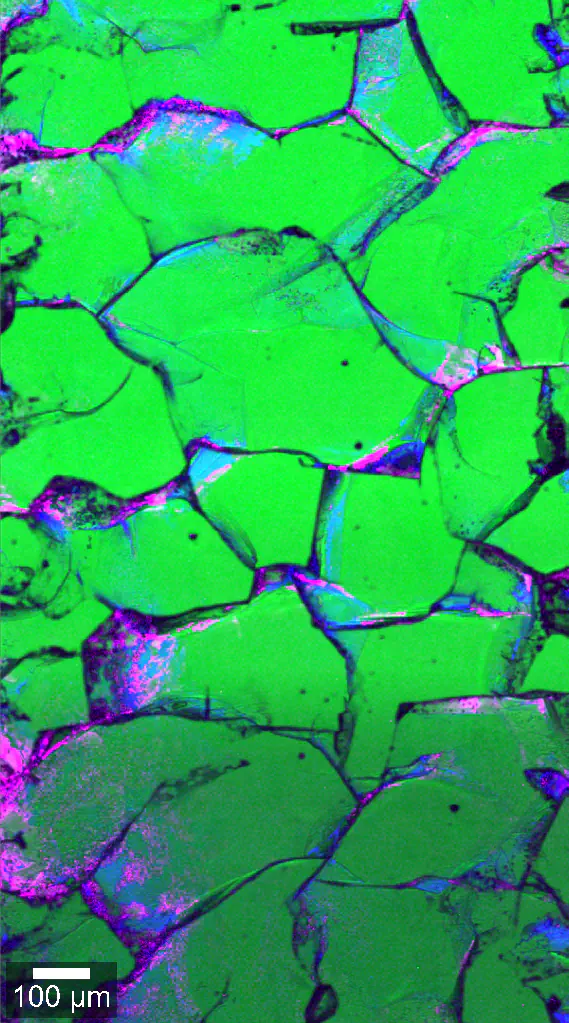Cracks and carbonation
 Raman map of a carbonated cylinder of olivine
Raman map of a carbonated cylinder of olivine
Carbonation reactions are currently being explored as a potential solution for long-term carbon storage. The principle is simple: react CO2, from the atmosphere or some industrial source, with a mineral to form a new mineral in which the carbon is locked away forever in the crystal lattice.
Microstructures (cracks, fractures) play a critical role in controlling where these reactions take place. I performed carbonation experiments on cylinders fabricated from single crystals of olivine, which were pervasively fractured by thermal cracking, to try to understand the role that microstructures like fracture network play in controlling reaction distribution and progress.